Rainforest labs: How tech helps Indigenous communities fight deforestation - and save the planet
Cool Earth, a climate change charity bringing tech to the rainforest, is building labs and training Indigenous communities how to utilize everything from drones to WhatsApp in the battle against deforestation. Keeping rainforests standing is vital to tackling the climate crisis, the charity believes – so it’s working to ensure that those who know the ecosystems best also have the strongest tools to fight for their preservation
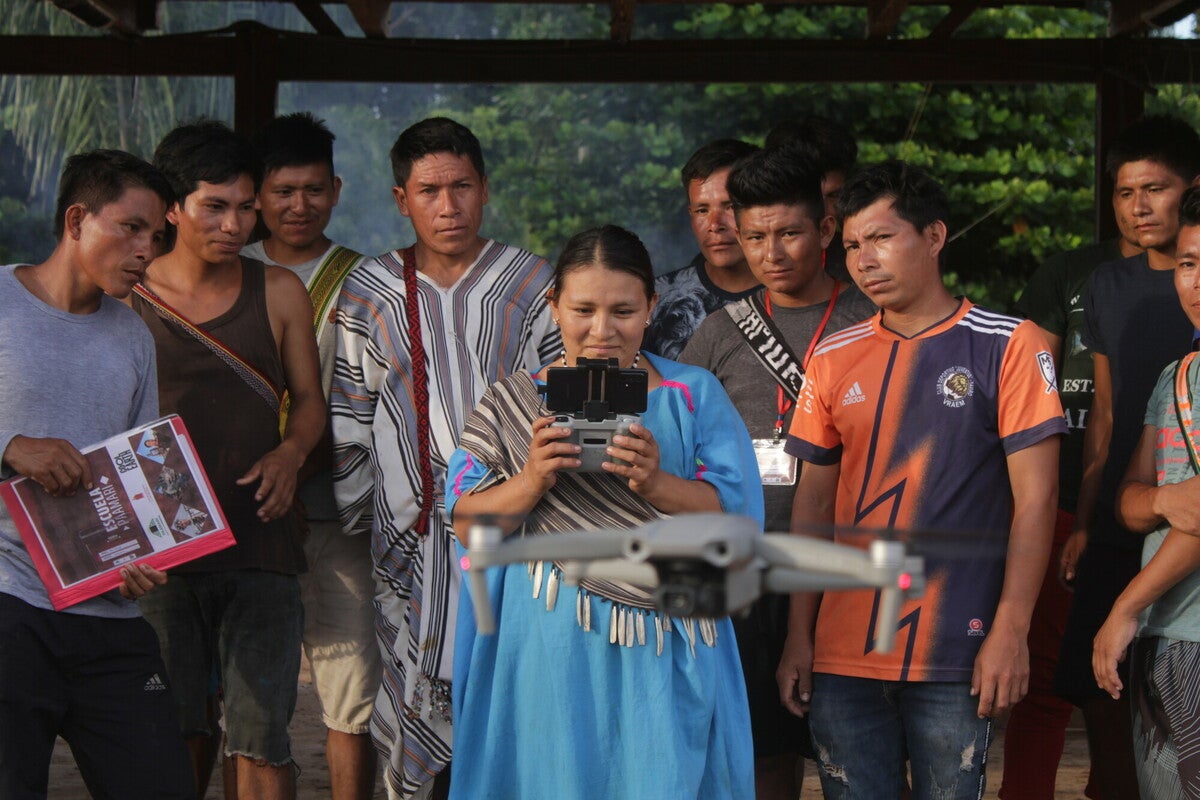
The wooden huts rise from the floor of the Amazon and the rainforests of Papua New Guinea, stilts protecting precious resources inside from the heavy downpours for which the regions are so famous.
Those resources have been hauled by land and sea, locals sometimes trekking by motorbike through eight inches of mud to transport everything from solar panels and batteries to data-filled laptops. Against the backdrop of oppressive humidity, ancient traditions and endangered species, that technology is subsequently installed in the huts known as “Rainforest Labs” to help native communities better monitor and preserve their ecosystems – helping save the planet simultaneously.
Every Lab is packed with much-needed wifi and electricity, run by a team of Forest Monitors from nearby villages who’ve been trained by climate change charity Cool Earth in the use of various tech tools – utilizing them not only to identify threats to the rainforest such as wildfires and logging but also to get quicker, better medical assistance for remote populations.
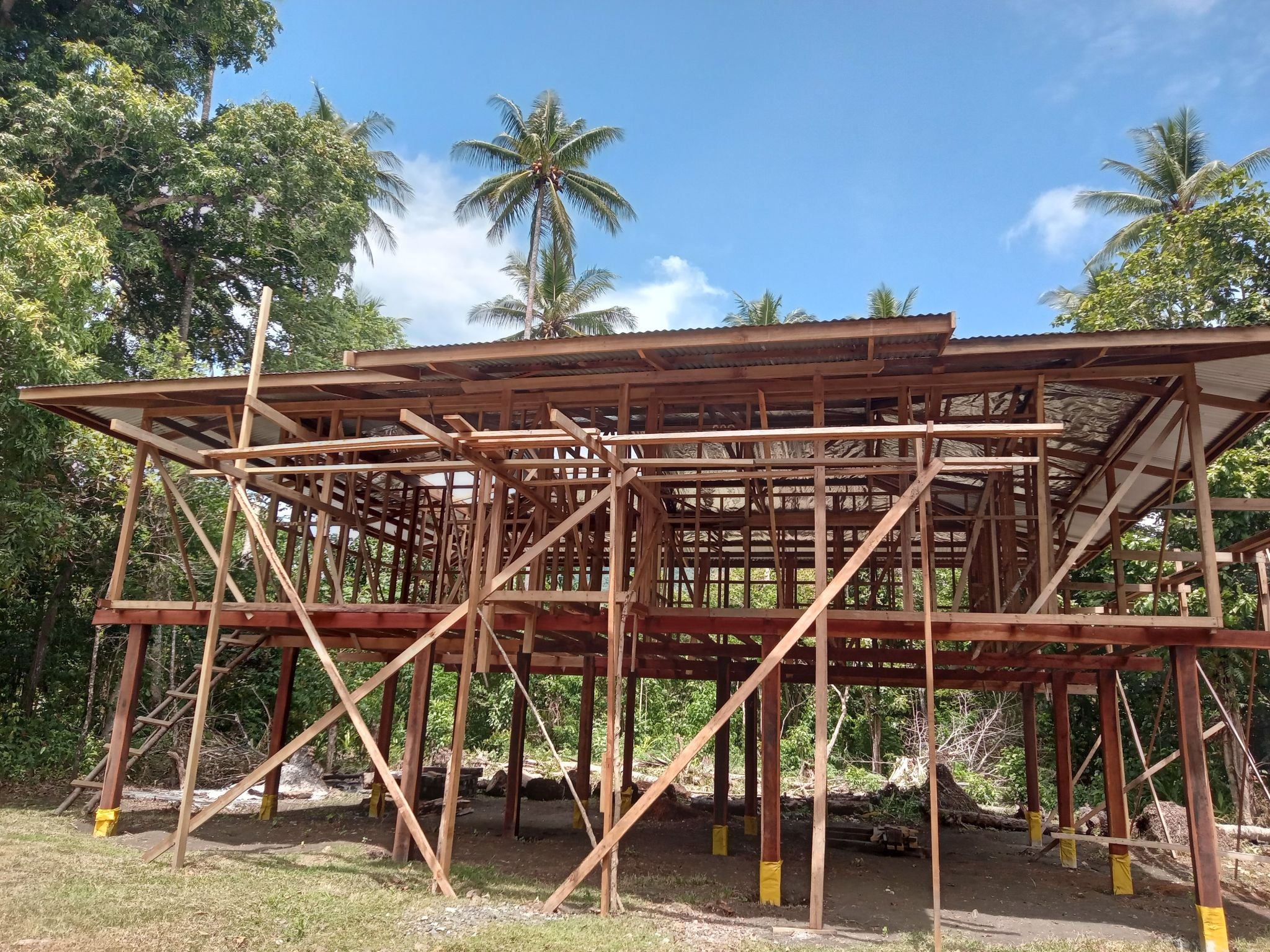
“Technology is quickly becoming central to Indigenous people’s ways of life, and most importantly in their fight to maintain their territories, and rightly so,” said Matt Proctor, Forest Impact Lead at Cool Earth.
“It’s strange to think that you and I have better access to data on their territories than they do, despite the fact that they live there. Quickly Google ‘wildfires in the Amazon’ and you’ll find out that 29,000 fires were reported in August, and that is an 83 per cent increase on last year. You can even see exactly where they are happening.
“Yet, whilst Indigenous peoples are often the first to find the wildfire, they are often the last to know about its full extent and where it may spread to, due to government or agency delays in getting information to such remote regions. Filling this gap in the chain of information with our Rainforest Labs and other tech arms rainforest communities with the news, data and support they need to keep their rainforest intact is vital,” Proctor said.
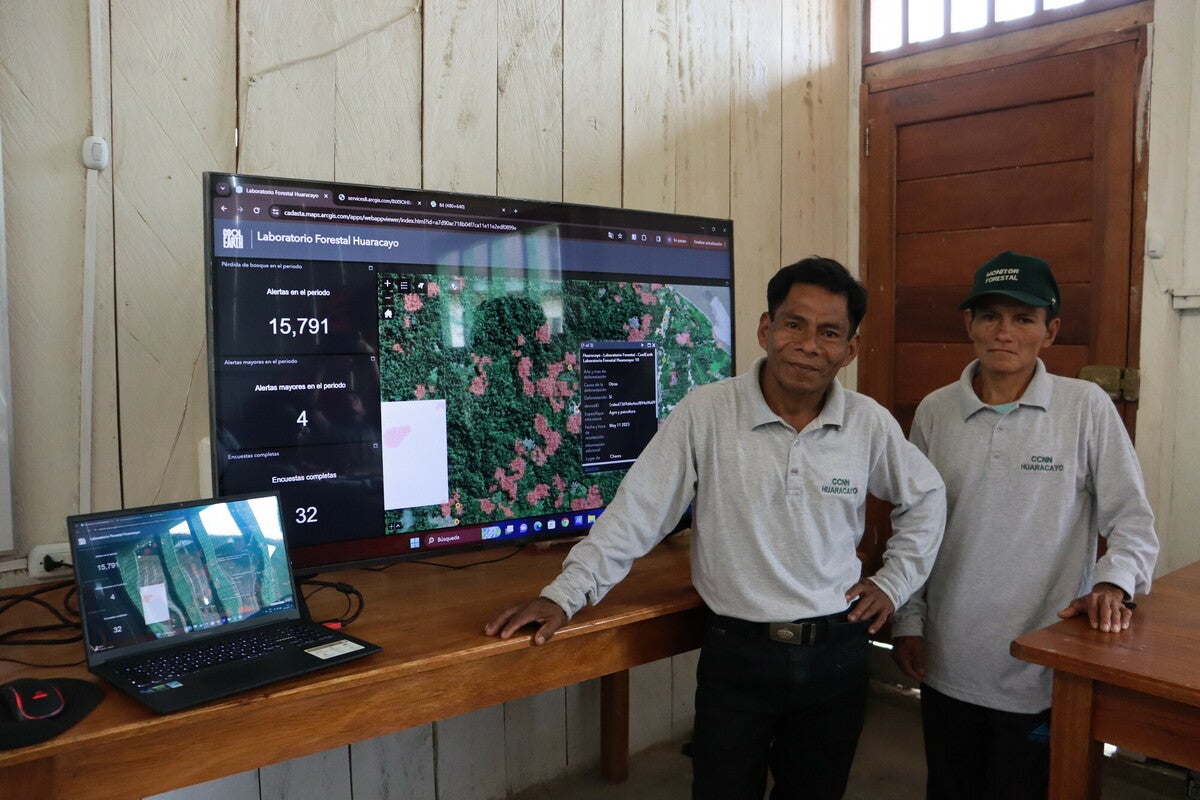
Cool Earth was founded in 2007, partnering with Indigenous peoples who have historically been the best at shaping and stewarding their ecosystems. While protecting carbon-rich rainforests in the three largest expanses of rainforests in the world – in the Amazon, Congo and Australasia – this approach marks the most scalable and cost-effective solution against the climate crisis, the organization believes. And supporting the rights and livelihoods of communities within those rainforests constitutes the most ethical and impactful conservation practice and commitment to climate justice, according to Cool Earth.
Deforestation releases “more than 5.6 billion tonnes of planet-warming greenhouse gasses every year,” the United Nations Environment Programme reported in July – more than four times the combined total of aviation and shipping.
And keeping rainforests standing is vital to tackling the climate crisis, Cool Earth reiterates.
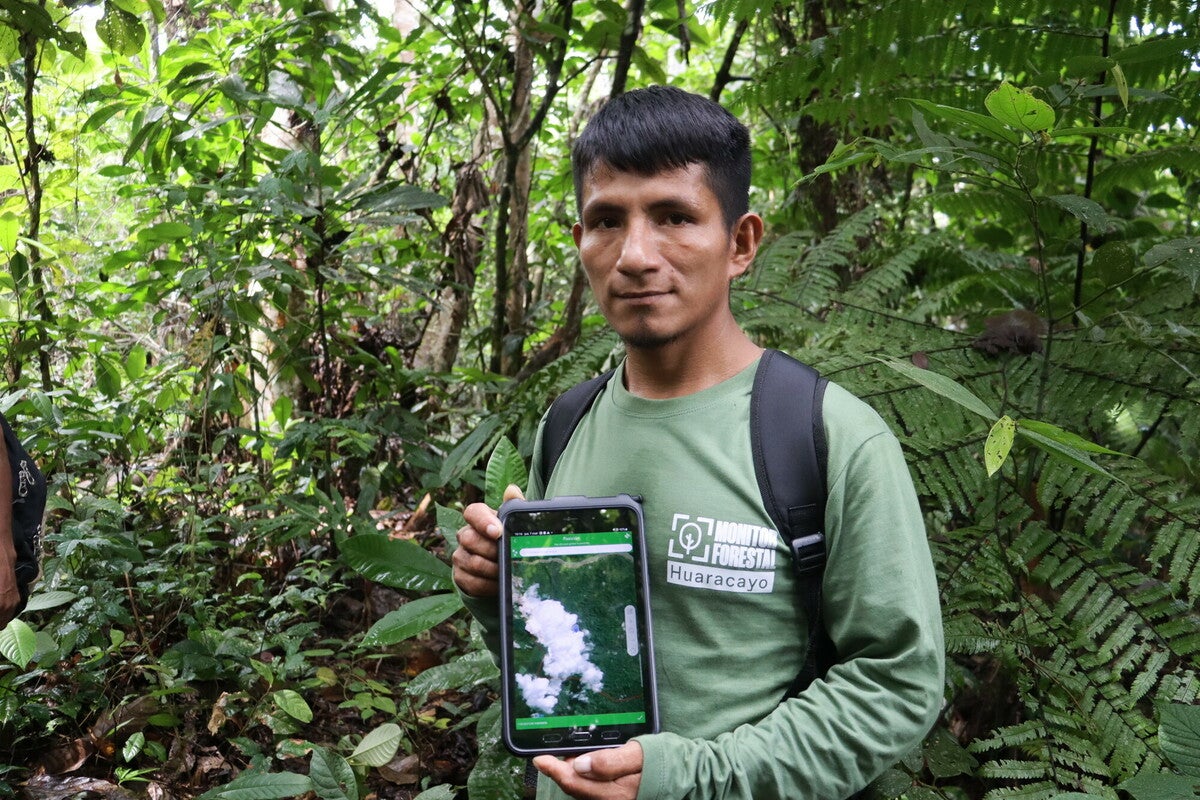
The Rainforest Labs and Forest Monitor teams are working at grassroots level to more quickly and efficiently combat forest losses; Cool Earth has recorded up to 82 per cent less deforestation in the organization’s partnered areas than outside of them, it says.
In early September, for example, its provided technology helped raise the alarm about a fire in the Asháninka region of Peru, enabling communities to act quickly to prevent its further spread. Cool Earth also partners with Indigenous organization CARE (Central Asháninka del Río Ene) on a project called “Paamari” – the Asháninka word for “fire” – that has developed a monitoring center to share real-time alerts about the probability of a fire starting. Community members have also been taught how to use drones and GPS to track fires more accurately and enable quicker action.

In addition to fighting against climate change, however, Rainforest Labs also help address more practical issues – as well as inequalities – faced by Indigenous peoples; wifi and WhatsApp have essentially saved lives in some of the most remote populations Cool Earth works with.
In Peru’s Parijaro, for example, high in the Ene Valley mountains, communities can only be reached by one small, often inaccessible mud road; on top of that, climate change has brought cooler temperatures and accompanying illnesses. Now the community leader has access to Whatsapp, they are able to call for help in cases of critical illness – meaning the sick can be transported to the nearest hospital by motorcycle or even helicopter rather than undertaking the arduous two-day journey by foot and boat.
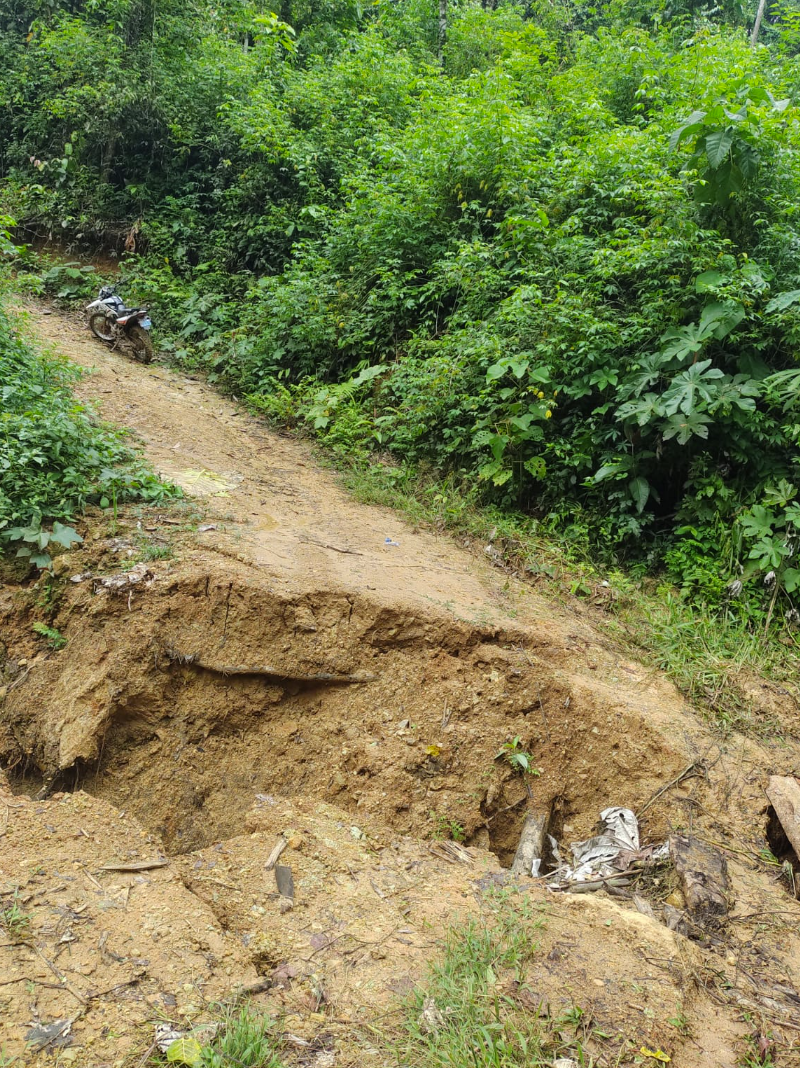
Cool Earth and rainforest monitors know that combining efforts and tech works to protect rainforest – and protecting rainforest is vital in the larger fight to combat climate change across the globe.
“The rainforest provides us with everything; that’s why we want to care for it,” said Orrego, a forest monitor and member of Peru’s Awajún community. “We need to ensure that no one takes that away from us.”
Subscribe to Independent Premium to bookmark this article
Want to bookmark your favourite articles and stories to read or reference later? Start your Independent Premium subscription today.
